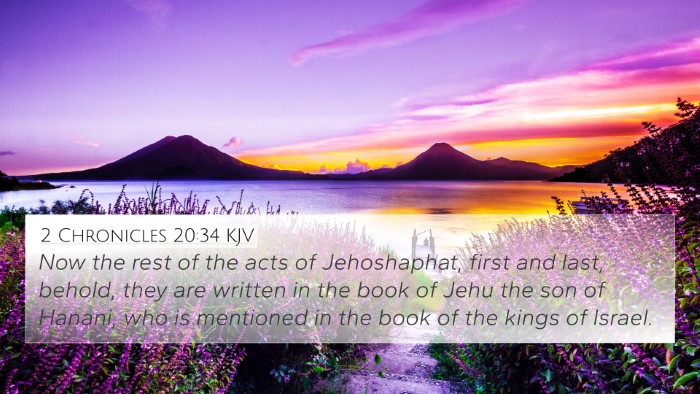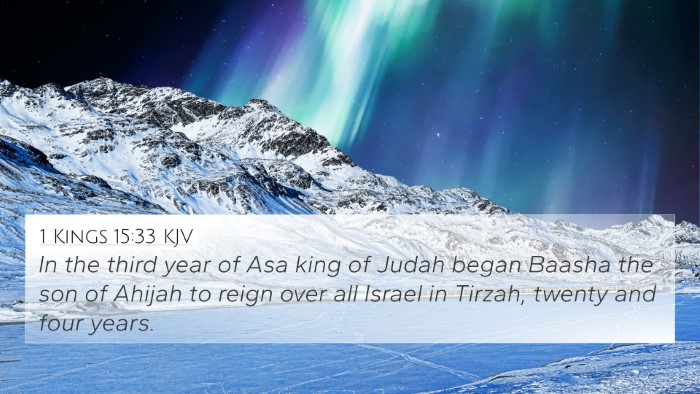Understanding 1 Kings 16:1
Verse: "Then the word of the Lord came to Jehu the son of Hanani against Baasha, saying," (1 Kings 16:1)
This verse serves as a crucial turning point in the narrative of the Kings of Israel. It highlights God's ongoing relationship with His chosen people and His willingness to communicate His intentions through prophets.
Summary of Interpretation
The significance of this verse lies in its demonstration of sin, judgment, and God's sovereignty.
Key Themes in 1 Kings 16:1
- Divine Intervention: The phrase "the word of the Lord came" indicates God’s active involvement in the affairs of mankind.
- Prophetic Authority: Jehu, being a prophet, represents a channel through which God communicates His judgment.
- Judgment on Israel's Kings: Baasha’s reign is being challenged here as indicative of God’s displeasure.
Commentary Insights
According to Matthew Henry, this verse illustrates the cycle of disobedience among Israel’s kings and God's persistent call to repentance through His messengers. Albert Barnes emphasizes that this encounter underscores God's foreknowledge and plans for the nation of Israel, revealing that leadership in Israel was held accountable.
Adam Clarke expands this notion by revealing the direct link between the actions of leaders and the prophetic declarations provided, thus reminding us of the weight of leadership under divine scrutiny.
Cross-References for Deeper Understanding
- 1 Kings 14:7-10: Similar prophetic warnings against Jeroboam reflect God's constant efforts to redirect His people.
- 2 Chronicles 20:20: Highlights the importance of trusting in prophets as instruments of God’s will.
- Isaiah 1:18: God's invitation to reason together emphasizes His mercy amidst judgment.
- Jeremiah 7:25: A reflection of the persistent sending of prophets in Israel's history.
- Hosea 6:5: Prophets serve to reveal God’s decrees to the nation, underscoring their significance in Israel’s relationship with God.
- Matthew 23:37: Jesus laments the rejection of the prophets, a theme that echoes throughout scriptural history.
- Acts 3:22: The role of prophets is established in the New Testament as well, showing continuity in God’s communication.
Thematic Connections
This verse encapsulates themes that resonate throughout the scripture, such as the necessity of prophetic voices in guiding and correcting God’s people. The link between 1 Kings 16:1 and various other scriptures offers a profound examination of the divine-human relationship, fulfillment of prophecies, and the moral responsibilities of those in power.
Insights on Cross-Referencing
Utilizing tools for cross-referencing, one can delve into the extensive network of scripture that sheds light on 1 Kings 16:1.
- Comprehensive Bible Cross-Reference Materials: These tools can assist in identifying similar themes and concepts across different books.
- How to Find Cross-References in the Bible: Study methods can illuminate relationships between the Old and New Testament, enhancing understanding.
Conclusion
1 Kings 16:1 calls attention to the intersection of divine authority, prophetic mission, and the challenges faced by Israel's kings. By examining this verse alongside its cross-references, readers can appreciate God’s unyielding approach to governance and holiness in His people.







